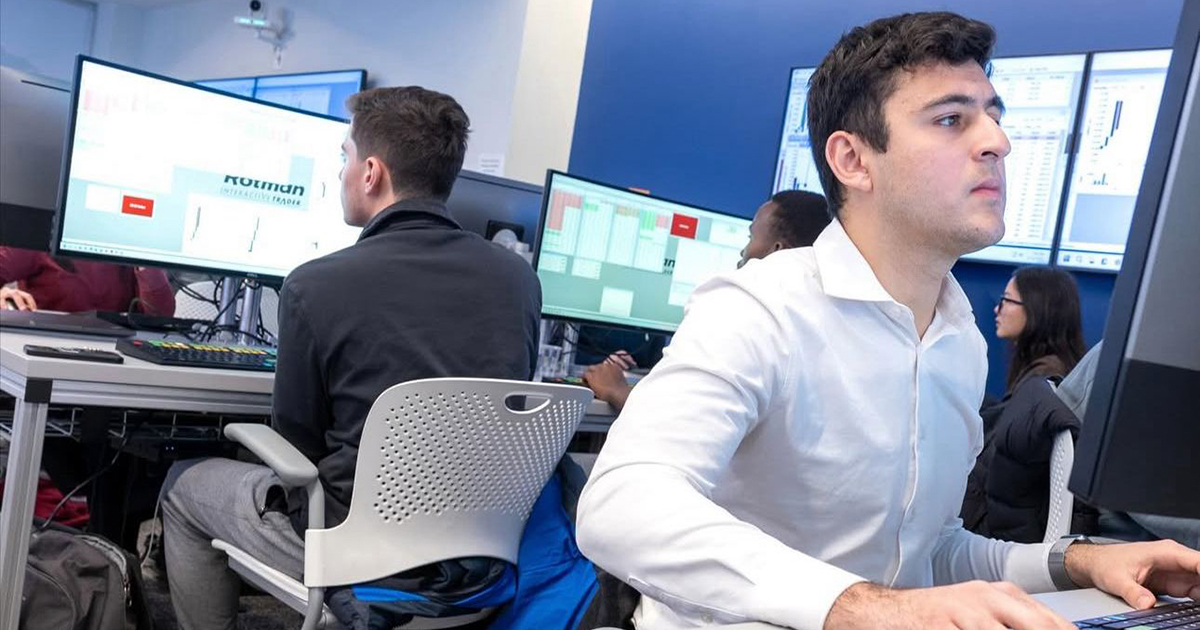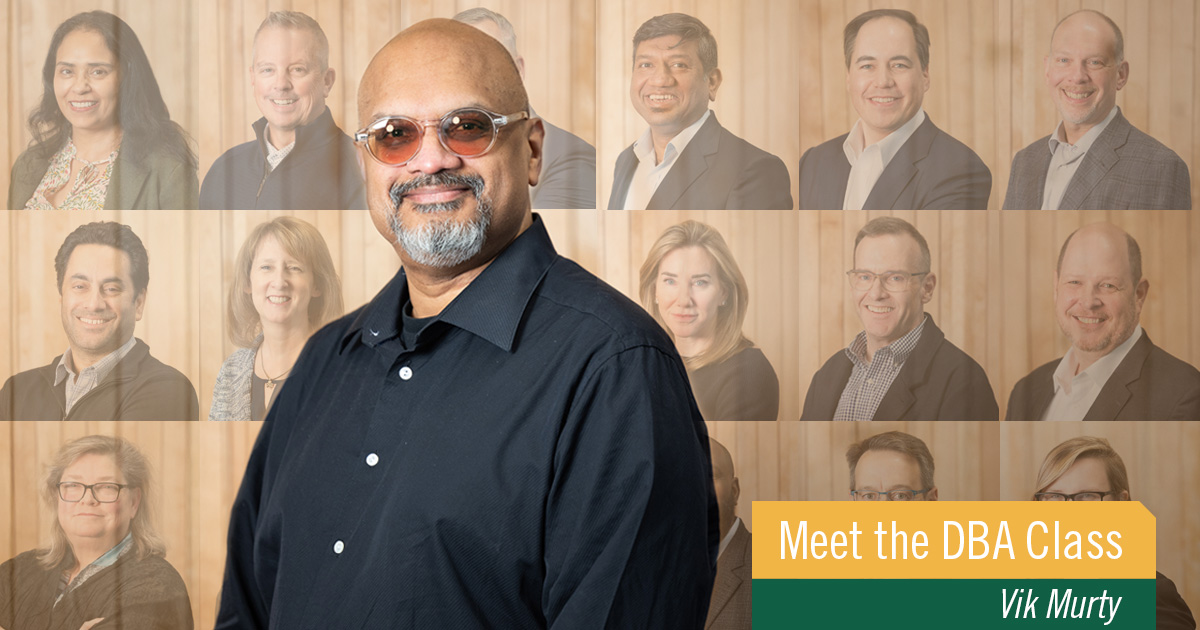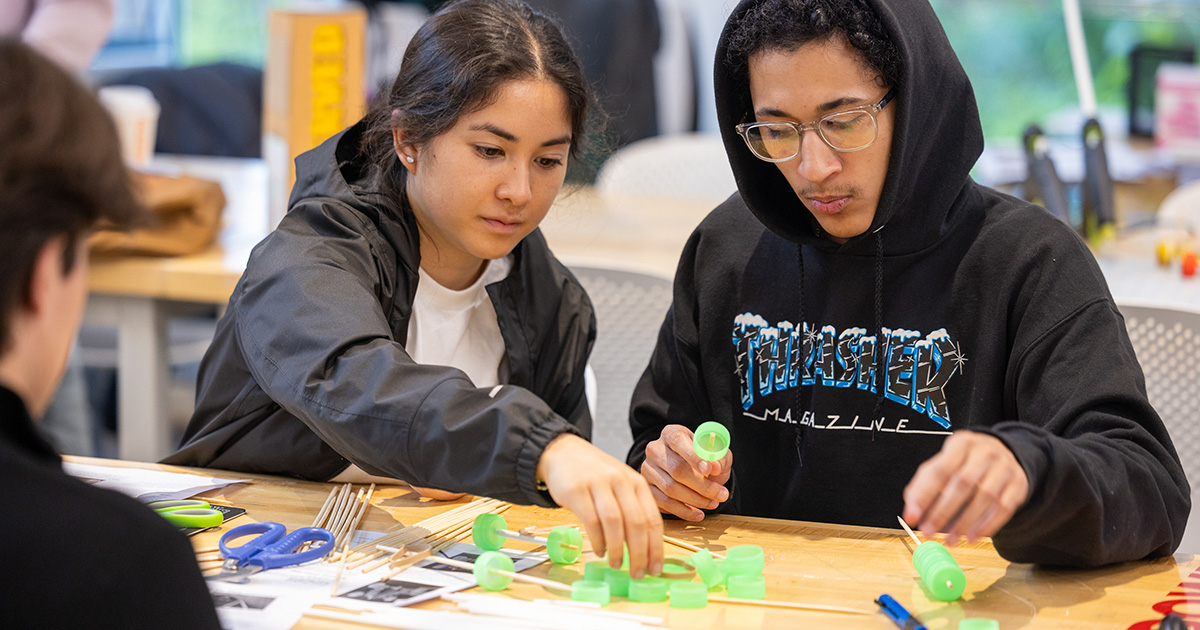Gerald Watson ’76 and the Babson Black Alumni Alliance
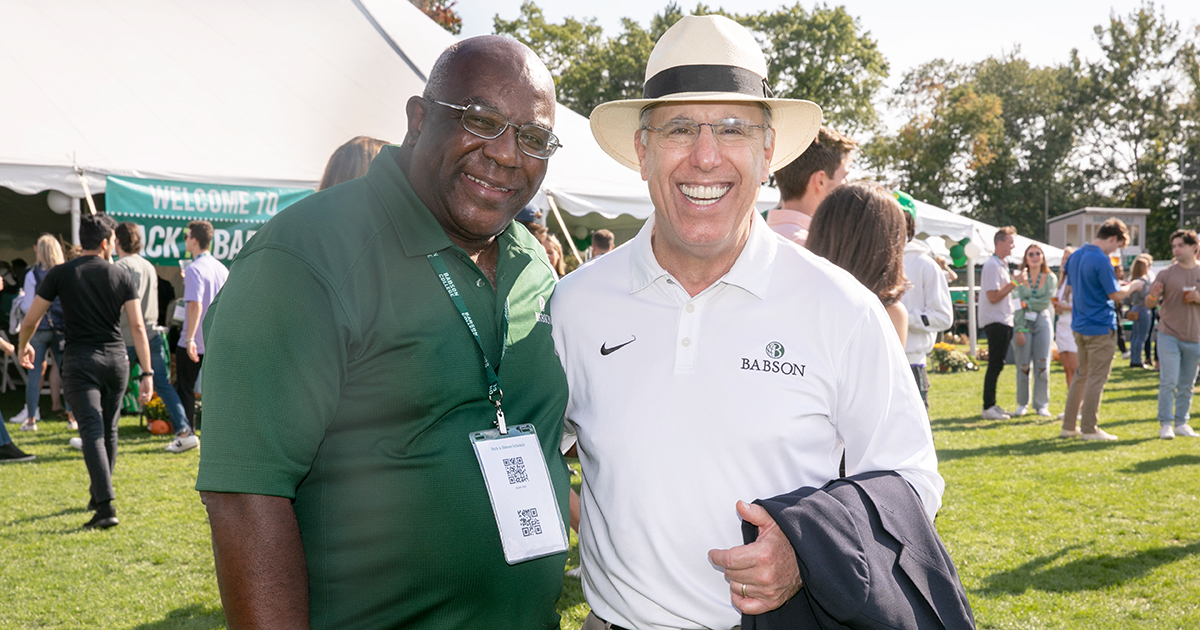
Gerald Watson ’76 knows how to bring people together.
As an undergraduate, he was the driving force behind the Beaver Brau, the College’s original watering hole, which opened in April 1974. Now, nearly a half-century later, Watson is helping connect his fellow alumni as the founding chair of the new Babson Black Alumni Alliance.
The BBAA formally launched during Back to Babson weekend in October, hosting a welcome reception, conducting its first business meeting, and enjoying a barbecue at the home of Lawrence P. Ward, Babson’s vice president and dean of campus Life. Among the initial objectives of the BBAA are creating a communications team and convening a strategic planning retreat to formalize the BBAA’s mission and purpose.
“We’re just getting started, and I’m excited about the prospects,” says Watson, owner of The Watson Group, a financing company based in Chicago. “Our interest is to institutionalize this effort, so that 50 years from now, it will still be here. Now, with the growing team of dedicated Black alumni, we’re on our way to do so.”
Watson sat down with Babson Thought & Action during Back to Babson to talk more about the BBAA and its future impact.
How will the Babson Black Alumni Alliance serve Babson’s Black alumni?
“Serve means meeting needs. Much of the engagement with alumni has been primarily focused on the alumni serving as a resource to students. That’s really necessary, it needs to continue, it needs to expand. What we’re looking to do is to put a focus more broadly on what the needs are for alumni, how we can be a resource to them, and how we can work in tandem with students on campus in both the undergraduate and graduate schools to achieve a set of common goals and objectives. While it’s so important to ask alumni to give back in one form or another, having programming that can be responsive and meet some of their needs gives them reason to engage and get involved.”
What are some ways the BBAA will help make those connections ?
“We’re launching an initiative called ‘BBAA Means Business’ to help Black alumni who have their own business—whether it be through more business opportunities or professional development or providing access to financing. Through collaborative relationships and exposing them to resources, we hope we can provide more opportunities to be successful. The biggest thing we can do is be a facilitator for providing access and collaboration. Also, in my meetings with Black faculty, we’re talking about having more Black alumni speakers in the classroom. They bring real-world relevance to the students, helping them to connect the dots between thought and action, which is what Babson always has been known for. That benefits the alumni, too, enhancing their exposure.”
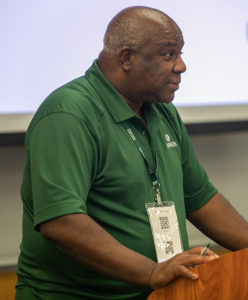
Gerald Watson ’76 speaks during the inaugural meeting of the Babson Black Alumni Alliance.
How closely will the BBAA work with the Black Student Union?
“Very closely. The Black Student Union, of course, was started when I was at school. One of the potential projects we’ve talked about is developing a Babson Black history archive. There have been students who have done research and reports, but one of the challenges is that there’s no central repository for that information. So, not just documenting the history and archiving it, but developing a place for it to be illustrated, displayed, maintained, where it’s institutionalized. We’ve got a lot of Black alumni who have done some really incredible things, such as Aaron Walton and Eric Johnson and others. If I’m a Black student, or even a prospective student, and I’m visiting Babson’s Black history archive, I’m going to be impressed and inspired, because the foundation of their success started with their experience here at Babson.”
How do the College’s efforts on diversity, equity, and inclusion (DE&I) today compare to your time as an undergraduate in the 1970s and over the past 40-plus years?
“Back then, we had 20 to 40 Black students, and today, we’ve got over 150. We had maybe a couple of Black professors; today, we have several. We had virtually no Black administrators; today, we have several. Notwithstanding the fact that you would expect that to happen over 50 years, there’s still a long way to go. Some of the issues are still the same, but some have clearly evolved. The most significant thing that’s evolved is the consciousness of the College at the highest levels. Today, what we have at Babson that we didn’t have 50 years ago is a clear focus and commitment of the College, from the trustees to the president to our entire leadership, to see the importance of DE&I to integrate it into the strategic plan, so that DE&I now touches every aspect of the Babson community. And, when you have that level of commitment, in conjunction with action, you’re able to accomplish a lot more things. The idea of creating the BBAA came out of that strategic plan. We see ourselves as another way to help the College in executing its mission through the alumni.”
Posted in Community

